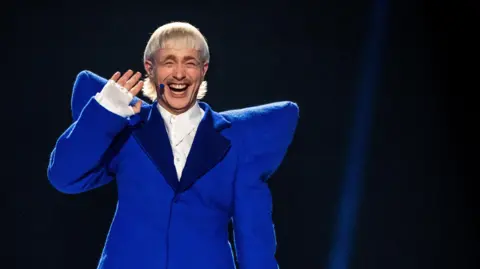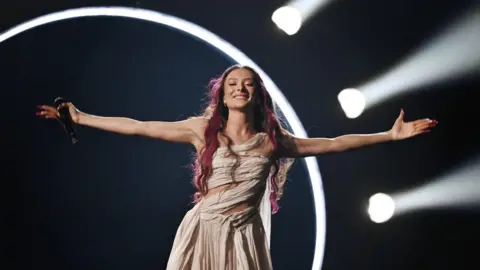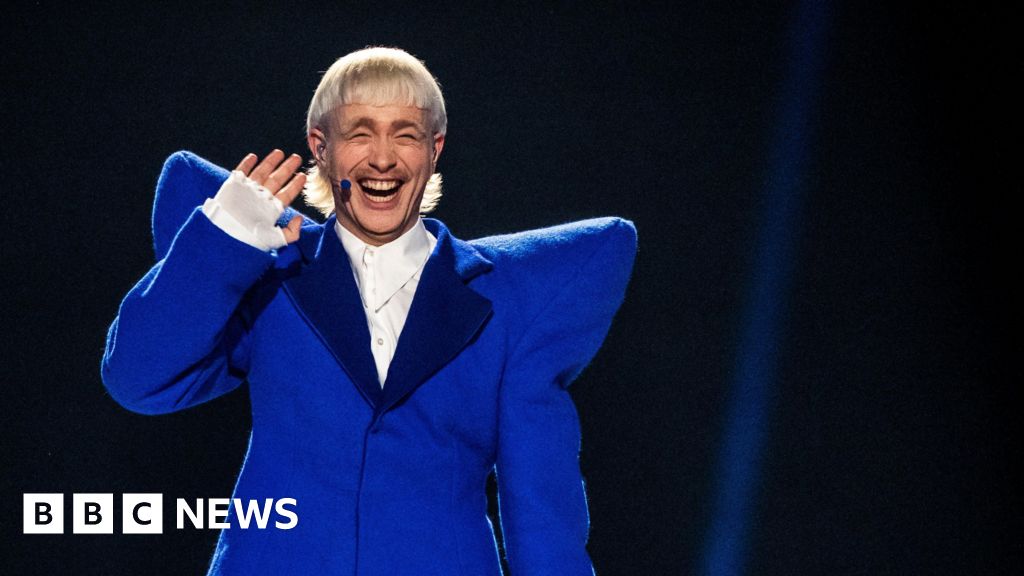 EPA
EPAThe Dutch singer Joost Klein, who was disqualified from the 2024 Eurovision Song Contest, will not be prosecuted over the “backstage incident” that led to his dismissal, Swedish authorities have said.
Klein was banned from the grand final hours before it took place in Malmö on 11 May, after a female camera operator accused him of “threatening” behaviour.
However, on Monday, the Swedish prosecution authority said it could not prove that Klein “had any such intention”.
Senior prosecutor Fredrik Jönssom said the singer had made “a movement that hit the woman’s film camera” but that the course of events “was fast and was perceived differently by the witness of the incident”.
“Today I have closed the investigation because I cannot prove that the act was capable of causing serious fear,” he added.
The singer’s management said they were “extremely happy and relieved” that the case had been abandoned.
“The last few months have been terribly difficult,” they said in a statement.
“Finally we can say it out loud: There was never a reason for this case.”
The musician’s response was more light-hearted: He posted a compilation of happy dog videos to his Instagram story and updated his biography to read “Eurovision 2025”.
Klein had been one of the favourites to win the 2024 contest with techno anthem, Europapa.
The song was dedicated to his father, who died of cancer when Klein was 12. Before he died, Klein had promised to enter Eurovision on his behalf.
However, the singer’s plan fell apart when he was suspended during dress rehearsals the day before the grand final.
A day later, Swedish police confirmed that a man had been reported for making “unlawful threats” to a member of the camera crew, and Klein was disqualified.
‘Unnecessary and disproportionate’
Dutch broadcaster Avrotros, which is responsible for arranging the country’s Eurovision entry, called the move “disproportionate”.
It said that Klein had been filmed immediately after coming off stage “against clearly made agreements” and against his repeated indications that he did not want to be on camera.
Responding to the Swedish prosecutor’s decision to drop the case, the broadcaster said it would call a meeting with contest organisers the EBU to express its dissatisfaction.
“From the beginning, we have said that this disqualification was unnecessary and disproportionate and so it now appears to be.
“We are still deeply disappointed that the Europa adventure of Joost Klein and of the entire Netherlands was brutally ended in this way.
“The next step is to have a meeting with the EBU management about this matter at very short notice.”
 EPA
EPAKlein’s disqualification was not the only source of controversy at this year’s contest.
Israel’s participation was widely criticised amid the ongoing Israel-Gaza war, with several pro-Palestinian protests taking place around Malmö Arena.
Italy’s Angelina Mango and Ireland’s Bambie Thug were among contestants who complained of a “tense” and “horrible” atmosphere backstage.
Other entrants accused the Israeli delegation of filming them and posting clips online without their permission.
Avrotros said it would raise “other objections about the course of events behind the scenes” during its meeting with the EBU.
It noted that those complaints had previously been raised “in a comprehensive letter of objection, which to date has remained unanswered”.
“The ball is now in the EBU’s court,” it concluded.


